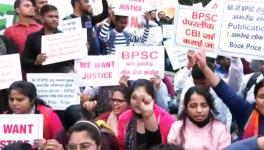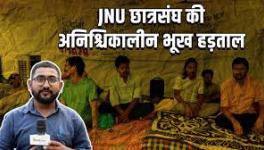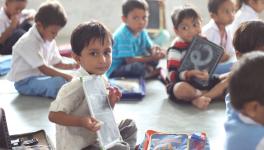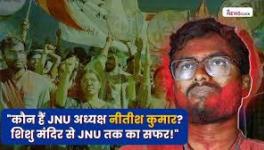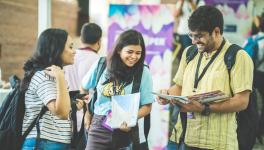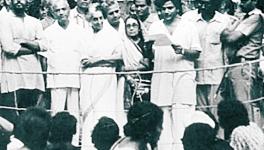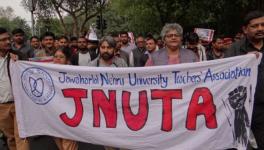JNU Plunged Into Darkness Minutes Before Screening of BBC Documentary on Modi

New Delhi: High drama ensued when students of Jawaharlal Nehru University (JNU) gathered to watch the first episode of the two-part BBC documentary, ‘India: The Modi Question.’ AT 8:30 pm, barely half an hour before the Jawaharlal Nehru University Students’ Union (JNUSU) started the screening, the campus was plunged into darkness.
Students gathered to watch the film alleged that the authorities deliberately switched off electricity and internet access on the campus at the time of the screening. It was only after midnight that power was restored after a group of students, as a mark of protest against the authorities watched parts of the documentary on their phones and laptops.
Around 10.30 pm, some stones were thrown at the crowd of students that had gathered to watch the documentary, but in the dark, it was not clear where these had come from. JNU Students Union president Aishe Ghosh addressed a gathering of students who had come to watch the documentary at the University’s Student Community Centre and condemned the power cut. “This is undemocratic, and if they had an issue they should have issued an issue they should have condemned us. They can shut down the electricity but they cannot stop us from watching the documentary,” Ghosh said.
She distributed the QR code to the link of the documentary and invited students to watch the documentary. However, with a weakened internet network, not many students could watch the documentary.
According to a report in The Indian Express, an official in the Union Education Ministry said, “We have been told by the JNU V-C and the university Registrar that it’s a massive power failure which has affected one-third of the campus. There is no deliberate attempt to cut power.”
However, sources said such a prolonged power cut on campus was unusual and BSES- which supplies power to the campus, had no mention of the outage on its website. Its last entry for the day for “maintenance outage” in the neighbourhood was for one between 11 am and 3 pm.
Ghosh also told The Indian Express, “JNU held screenings of movies like The Kashmir Files but we never got an advisory from the administration. This is happening for the first time.” She added that whenever there was a power cut, the campus community was “notified” by the administration “but this time we got no notice.”
On Monday, the university administration dissuaded students from going ahead with the screening. In a statement, it said, “No prior permission for this event has been taken from the JNU administration. This is to emphasise that such an unauthorised activity may disturb peace and harmony of the university campus. The concerned students/individuals are firmly advised to cancel the proposed programme immediately failing which strict disciplinary action may be initiated as per university rules.”
In response, the students’ union said, “The screening is a voluntary action by the students… Can you please specify the provision of the JNU Act/Statute/ Ordinances/ Rules and Regulations governing the University which mandates that prior permission is required from the administration for screening of any film/documentary on the university premises?”
They added, “By screening the documentary/movie, we do not seek to create any form of disharmony. The purpose of the screening is only to watch the documentary on campus. Only the students with voluntary interest would take part in the screening.”
The Documentary series was pulled down by YouTube and Twitter on orders from the Centre, claiming the documentary had “the potential to adversely impact” the country’s “friendly relations with foreign states” and “public order within the country”. The BBC documentary focuses on PM Narendra Modi’s and his then-state government’s response to the 2002 Gujarat riots.
Get the latest reports & analysis with people's perspective on Protests, movements & deep analytical videos, discussions of the current affairs in your Telegram app. Subscribe to NewsClick's Telegram channel & get Real-Time updates on stories, as they get published on our website.










